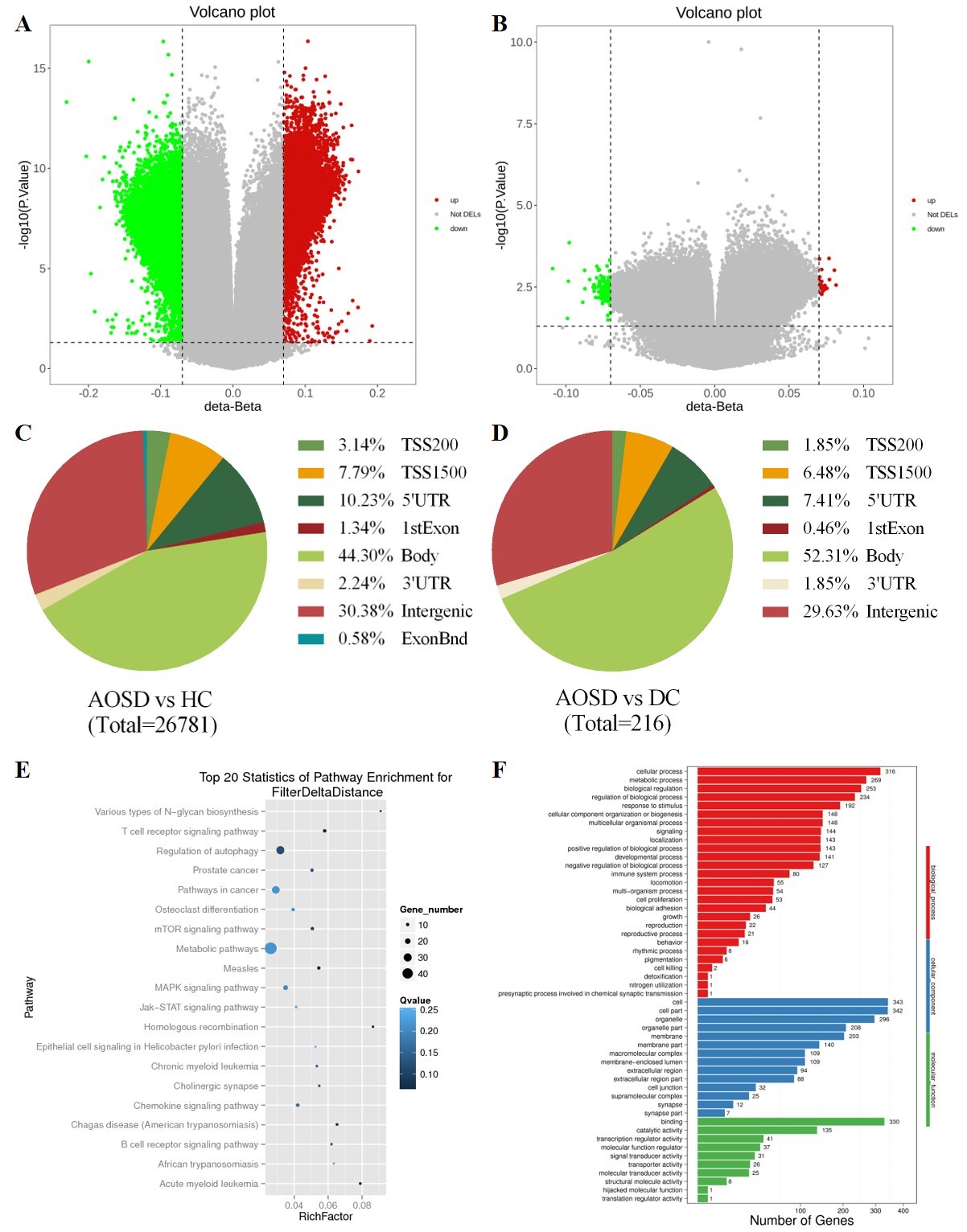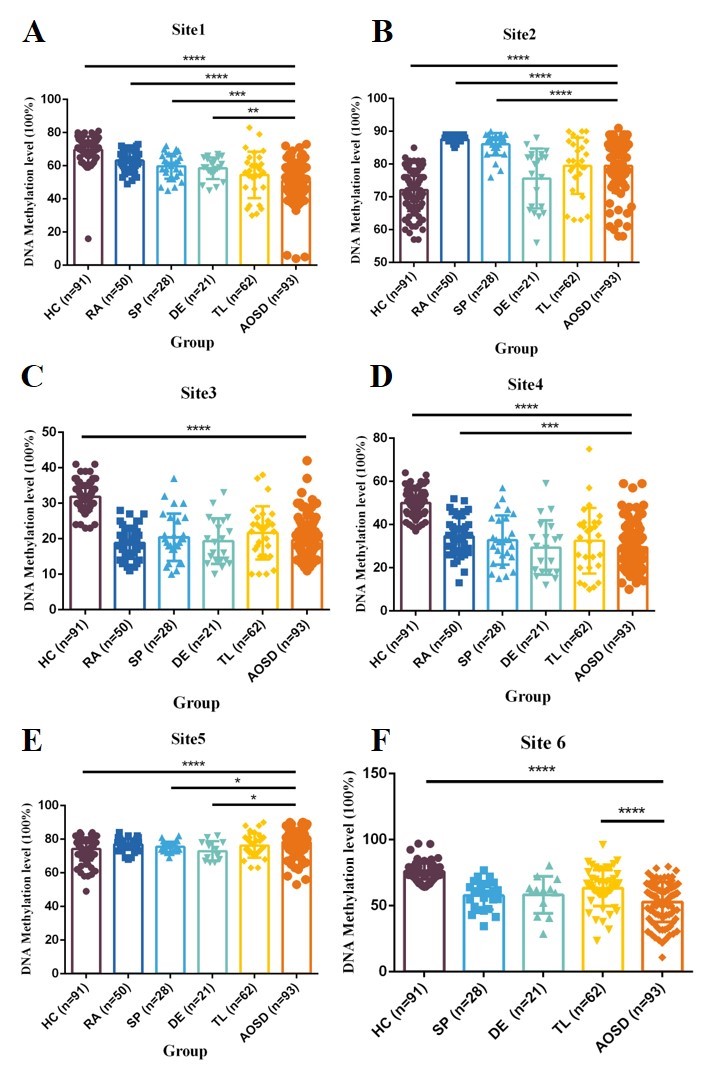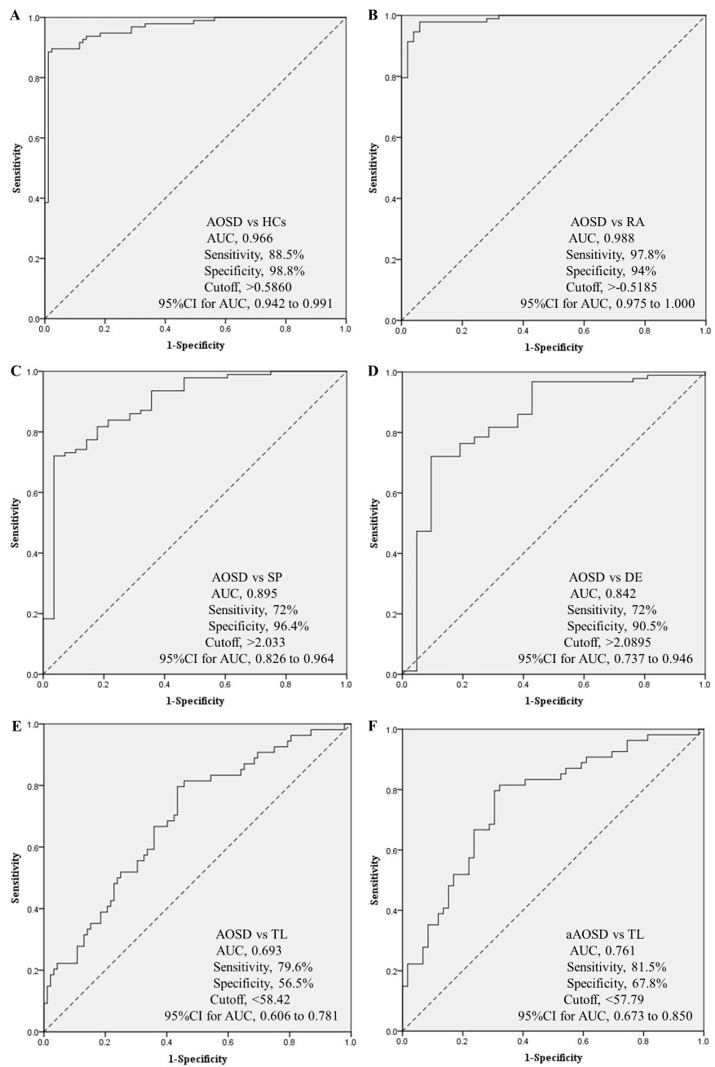Session Information
Date: Sunday, November 12, 2023
Title: (0252–0282) Miscellaneous Rheumatic & Inflammatory Diseases Poster I
Session Type: Poster Session A
Session Time: 9:00AM-11:00AM
Background/Purpose: Adult-onset still’s disease (AOSD) is an auto-inflammatory disease affecting multiple systems. The diagnostic procedures of AOSD are still a challenge. We aimed to find an effective DNA methylation biomarker for AOSD diagnosis in this study
Methods: Differential methylation CpG sites (DMSs) were selected from DNA methylation array comprised of a discovery cohort including 50 AOSD patients, 49 healthy controls (HCs), 24 T cell lymphoma (TL) patients, 24 sepsis (SP) patients and 24 drug eruption (DE) patients. A cohort of 96 AOSD patients, 92 HCs, 50 rheumatoid arthritis (RA) patients, 28 SP patients, 21 DE patients and 62 TL patients was used for validation via pyrosequencing. Subsequently, four logistic regression prediction models were performed.
Results: Nine DMSs were selected from the discovery cohort via the DNA methylation array incorporating Least Absolute Shrinkage and Selector Operation (LASSO). We analyzed the methylation levels of these CpG sites by pyrosequencing in the validation cohort, and calculated four logistic regression prediction models in order to differentiate AOSD from the HCs (AUC: 0.964, sensitivity: 98.5%, specificity: 98.9%), the RA group (AUC: 0.988, sensitivity: 97.8%, specificity: 94%), the SP group (AUC: 0.885, sensitivity: 77.1%, specificity: 92.9%) and the DE group (AUC: 0.842, sensitivity: 72%, specificity: 90.5%) respectively. In addition, the methylation level of cg14887853 could be used to distinguish AOSD (AUC: 0.693, sensitivity: 79.6%, specificity: 59.5%) and active AOSD (AUC: 0.761, sensitivity: 81.5%, specificity: 67.8%) from TL respectively.
Conclusion: The DNA methylation levels of CpG sites can be used as biomarker for diagnosis of AOSD.
To cite this abstract in AMA style:
Rao S, Zhang B, Li Y, Zhou T, Shi X, Shi W, Jiang Y, Wang W, Xu Y, Tian Y, Zhang M, Ma J, Luo H, Luo H, Zhao H, Li F, Ling G, Tian J, Kang X, Liang J, Chen A, Chen S, Qiao J, Wang G, wang L, Li B, Lin Y, Wen S, Song Z, Zhang M, Liu J, Tan Y, Wu H, Long H, Zhao M, Lu Q. DNA Methylation Markers in Peripheral Blood as Effective Diagnostic Biomarkers for Adult-onset Still’s Disease [abstract]. Arthritis Rheumatol. 2023; 75 (suppl 9). https://acrabstracts.org/abstract/dna-methylation-markers-in-peripheral-blood-as-effective-diagnostic-biomarkers-for-adult-onset-stills-disease/. Accessed .« Back to ACR Convergence 2023
ACR Meeting Abstracts - https://acrabstracts.org/abstract/dna-methylation-markers-in-peripheral-blood-as-effective-diagnostic-biomarkers-for-adult-onset-stills-disease/



